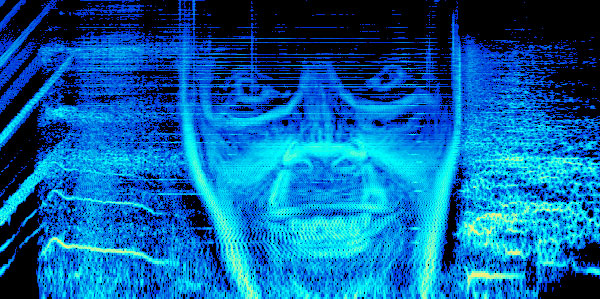Possible Next Steps
If the business of selling high-resolution music is not as transparent as we would like it to be what can we do? I’ve already said that my own iTrax.com website is being redesigned and will deliver new transfers and masters of analog masters provided by the major labels (licenses and budgets willing). What the site has been delivering since its launch in the fall of 2007 is a bona fide catalog of over 1500 tracks that were actually recorded using high-resolution equipment. I can recall rejecting some really nice analog recordings done by a friend of mine because they didn’t qualify as “real high-resolution audio” according to my standards. The new iTrax will be less exclusive but make sure that the source format and all subsequent production stages are done at the very highest levels…and you’ll be able to download samples of the new transfers and see for yourself if the new “reference” versions are worth your money.
It’s clear that the current vendors of “high-definition tracks” or “studio masters” are run as businesses first and foremost and not really dedicated to maximizing the audio experience with their downloads. Several readers have communicated with a few of these companies asking about the relative merits of the 96 vs. 192 kHz downloads over ripping and existing copy of a CD. The responses are pretty telling.
As we saw with the response from Qobuz, the response is routinely something like the following, “all the titles in our store are the most up to date masters from our record label partners. Each record label has their own recording/mastering process when it comes to high res. We are not a record company. We don’t do anything to music provided to us by record companies. We are just a retailer. We don’t downsample or upsample. Or rip CDs.”
I’m not sure I believe it. There are independent studios that are working daily to prepare the files that are sold as high-resolution downloads. I’ve talked to these mastering houses and engineers. They’re doing what they’re told to do.
So what will it take to change things? I’m seriously thinking about setting up a “Audio Quality Assurance” website that will analyze “high-resolution downloads” from customers and readers and post the spectragrams. It’s kinda what I’ve been doing with this site over the past 9 months, but I will set up another FTP site so that you can upload example tunes for analysis and posting. It will be a database of tracks with spectragrams and annotations. Visitors will be able to enter the name of an album or track and discover whether it’s worth $25 or $30 bucks.
And we need to push back on the high-resolution audio download sites, the artists, the engineers, the producers and the labels. They should know that there is an active community of quality minded audio enthusiasts that are willing to purchase reasonably priced high quality downloads of their productions. I’m pushing as hard as I can on the engineering community within the NARAS organization and as part of the audio board at CES. The only thing that will make a difference is numbers.
If you’re interested in making some of your high-resolution audio purchases available for analysis, please let me know. I don’t need entire albums or even the entire track to do an analysis…just a minute or two will suffice. Let’s see if we can collectively work to change the market for high-resolution audio.


The “Audio Quality Assurance” web site sounds like a great idea. I have posted a number of spectrograms on various audio sites, but there really hasn’t been any good single place for them.
I also think this would be a nice resource, and it would complement the existing website, the Dynamic Range Database (http://www.dr.loudness-war.info/). This seems reasonable, and not malicious, merely it helps people know more about the music they are considering to purchase. This is much less of an issue with physical CDs since all CDs adhere to the same Redbook standard (at least supposed to right?). Personally, I don’t have a huge issue with whether DSD should be included/excluded as high-resolution. My bottom line is with the advent of digital music distribution, I would be satisfied to know the provenance of the track or collection. I have noticed this is becoming increasingly common over the past year. In this aspect, I will look forward to the refreshed iTrax site. Thanks Mark.
I’d like to make some of my high-resolution audio purchases available for analysis. Please tell me how.
Thanks again for all you do.
Hi Mark, i’m a regular customer of the Qobuz site. I’ve purchased among 10 albums in QSM, like the “blue train” album from John Coltrane announced as a 192khz/24bits file. I’m interesting to participate to your “rating campaign”. Even if i’m satisfied with this site and the audio quality of the records purchased. And to know what is your standard for His res audio files.
I have some few dsf recording files also.
Let me know how to proceed.
Best Regards.
I endorse the improvement of all audio downloads, it’s just that the marketing terminology doesn’t match the actual specifications of the delivered audio. I don’t think in the case of Qobuz that this is deliberate…in all honestly, I just don’t think they know (or care) what they are being given by the labels. And their guarantee is meaningless.
Hi Mark, do you have an opinion about this german Hi res audio site ? :
http://www.highresaudio.com/texte.php?ca_id=548
I’m also a customer of this one.
Highresaudio.com gets the same master transfers as HD Tracks, as far as I know. While I haven’t downloaded any of their files, I would expect to see the same results as with HD Tracks. Maybe someone will offer to put some of their tracks up on the Quality Assurance site.